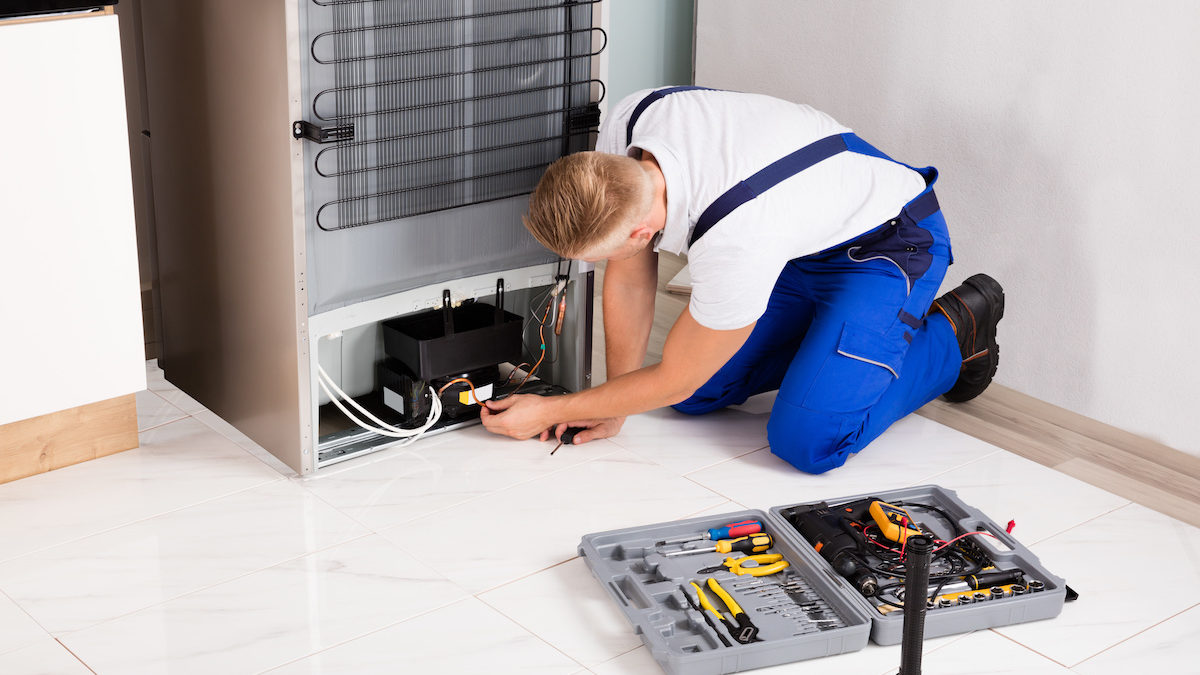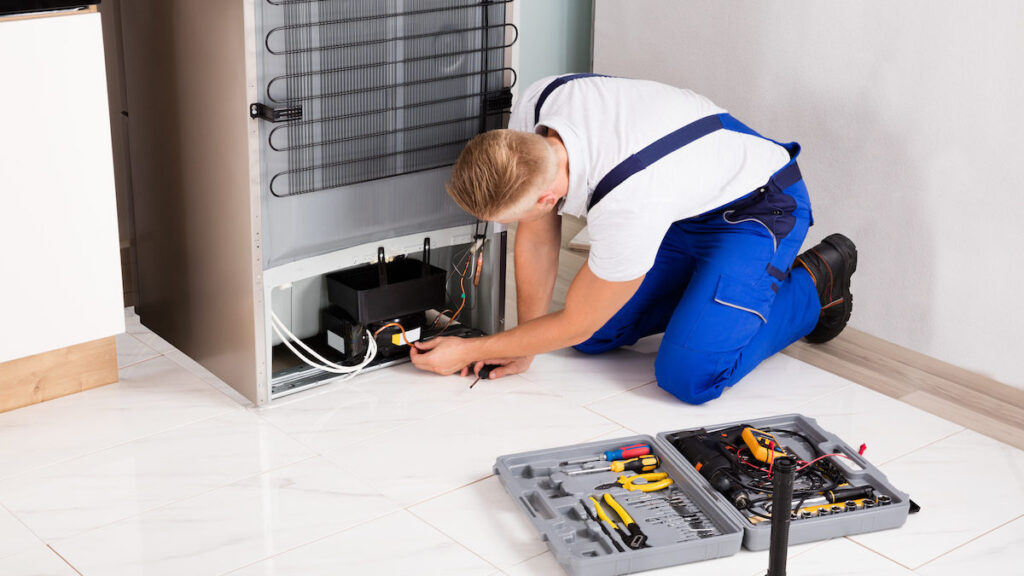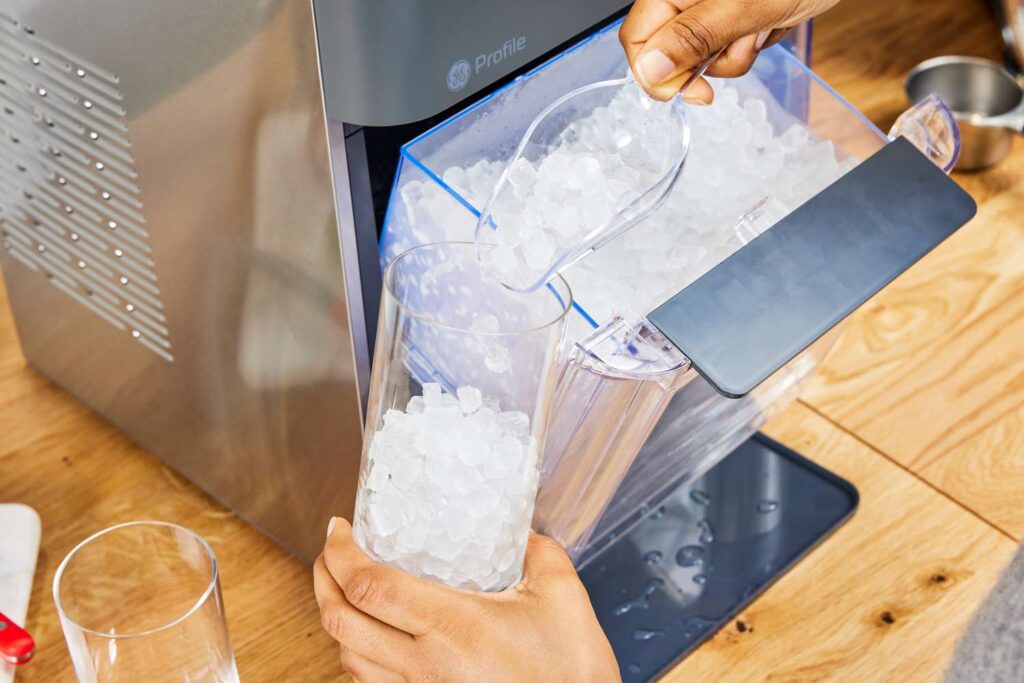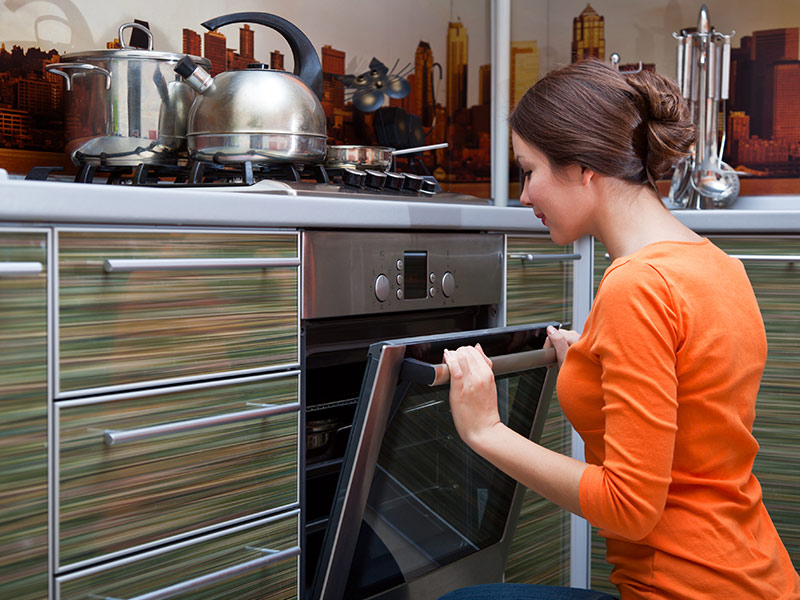Common Refrigerator Problems
- Temperature Issues
- Too Warm: If your refrigerator isn’t keeping food cold enough, it can lead to spoilage. This issue is often caused by a malfunctioning thermostat, dirty condenser coils, or a faulty evaporator fan.
- Too Cold: On the other hand, if your refrigerator is freezing your food,
the thermostat might be set too low, or there could be an issue with the temperature sensor.
- Leaking Water
- Water leaks can be due to a clogged defrost drain, a broken water inlet valve, or issues with the water filter. It’s crucial to address leaks promptly to prevent water damage to your kitchen floor.
- Strange Noises
- Refrigerators can sometimes make unusual noises, from humming and buzzing to rattling and clanking. These noises can be caused by a
variety of issues, including problems with the condenser fan, evaporator fan, or compressor.
- Refrigerators can sometimes make unusual noises, from humming and buzzing to rattling and clanking. These noises can be caused by a
- Ice Maker Malfunctions
- If your ice maker isn’t producing ice, it could be due to a clogged water line, a faulty water inlet valve, or issues with the ice maker assembly itself
- Frost Build-Up
- Excessive frost in the freezer can indicate problems with the defrost system, such as a malfunctioning defrost heater or thermostat.
Troubleshooting Tips
- Check the Thermostat
- Ensure that the thermostat is set to the correct temperature. For most refrigerators, the ideal temperature range is between 37°F and 40°F.
- Clean the Condenser Coils
- Dirty condenser coils can cause the refrigerator to work harder, leading to temperature issues. Clean the coils every six months to ensure optimal performance.
- Inspect the Door Seals
- Worn or damaged door seals can let warm air into the refrigerator, causing temperature fluctuations. Inspect the seals for any signs of wear and replace them if necessary.
- Unclog the Defrost Drain
- A clogged defrost drain can cause water to leak inside the refrigerator. Use a pipe cleaner or a piece of flexible wire to clear any blockages.
- Replace the Water Filter
- If your refrigerator has a water dispenser or ice maker, replace the water filter every six months to prevent clogs and ensure clean water.
When to Call a Professional
While some refrigerator issues can be addressed with simple troubleshooting, others require the expertise of a professional technician. Here are some signs that it’s time to call in the pros:
- Persistent Temperature Problems
- If you’ve tried adjusting the thermostat and cleaning the coils but the temperature issues persist, it’s time to seek professional help.
- Frequent Leaks
- Repeated water leaks can indicate a more serious problem that needs professional attention.
- Loud or Unusual Noises
- Persistent loud noises can be a sign of a failing compressor or other critical components.
- Electrical Issues
- If your refrigerator trips the circuit breaker or experiences electrical problems, it’s best to leave the repair to a qualified technician.
Conclusion
A well-maintained refrigerator is crucial for keeping your food fresh and safe. By understanding common problems and knowing when to call for professional help, you can extend the lifespan of your refrigerator and avoid costly repairs. If you’re experiencing issues with your refrigerator, don’t hesitate to contact A Plus Appliances. Our expert technicians are ready to provide quick and efficient repair services, ensuring your refrigerator is back to optimal performance in no time.




